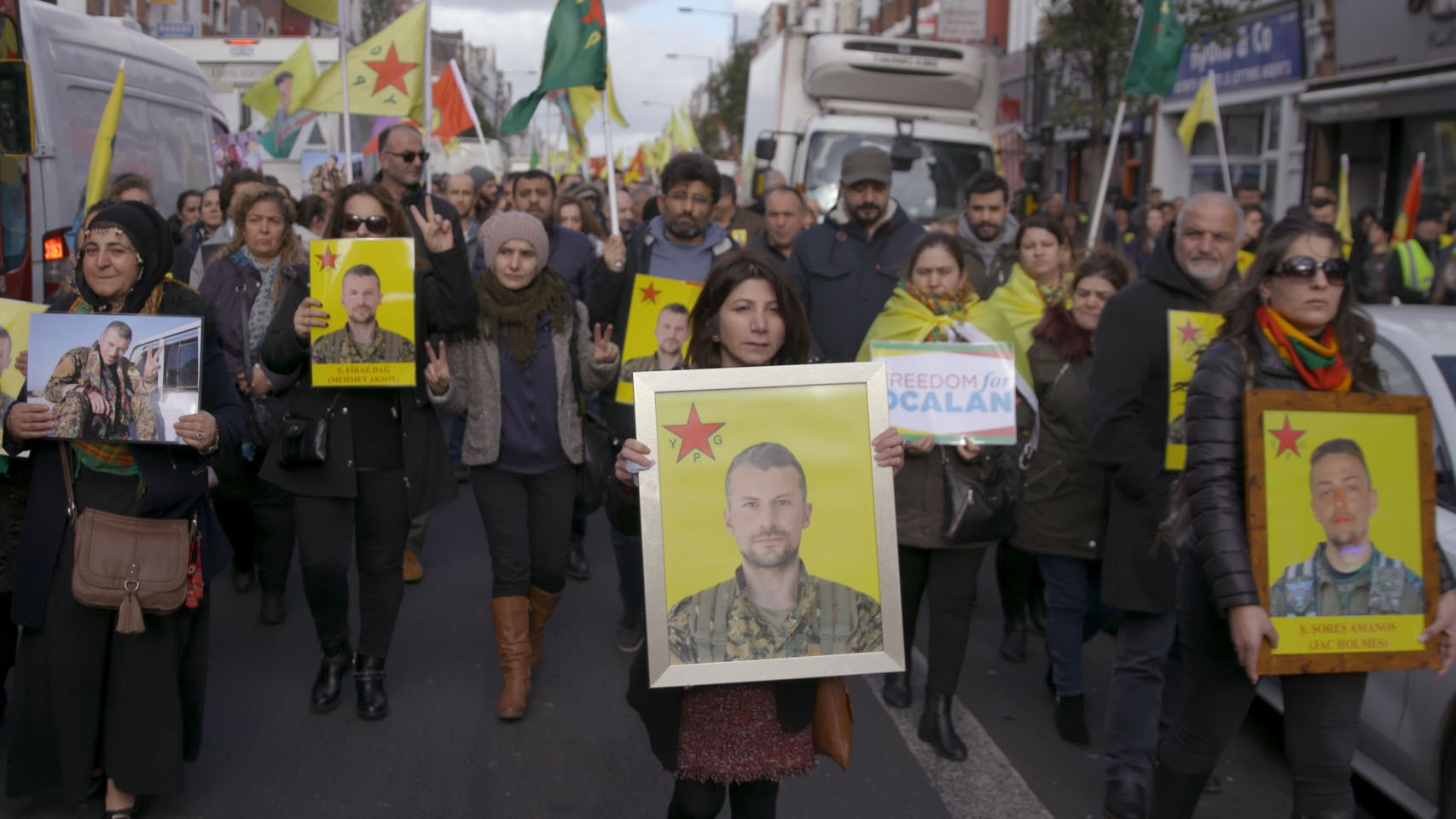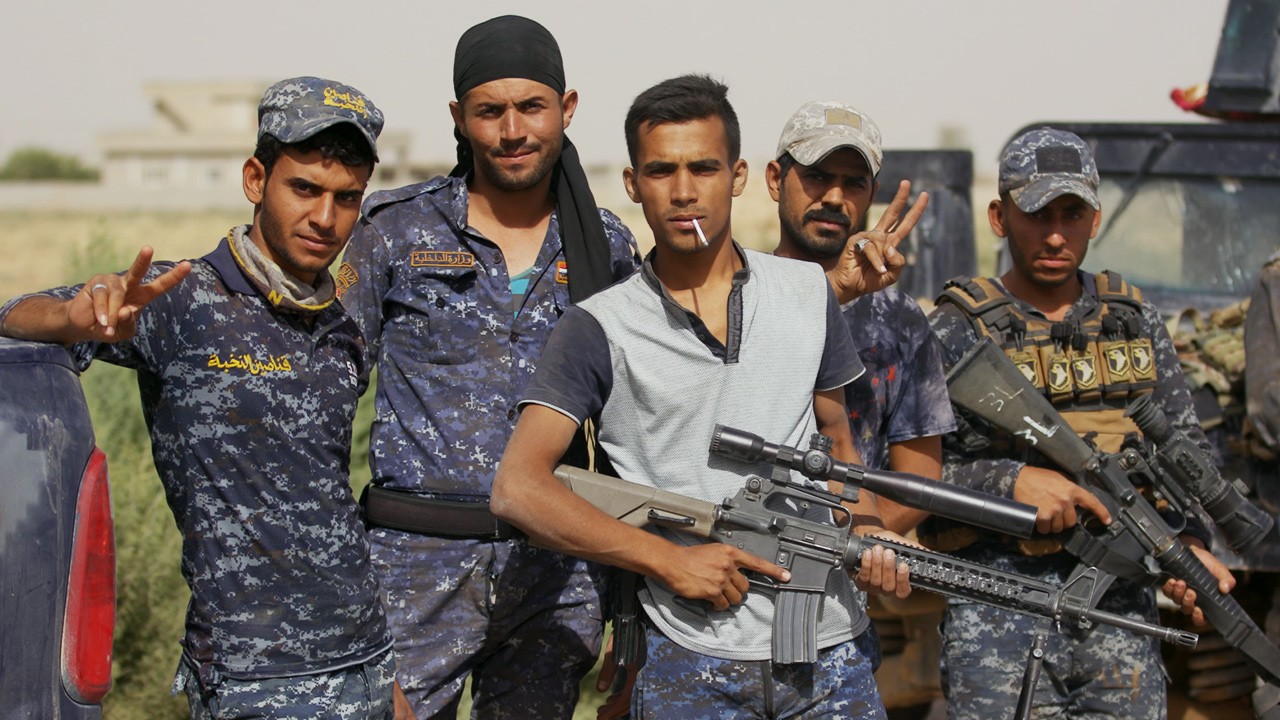Stock photo. Image via Shutterstock user Alessandra Siragusa
This article originally appeared on VICE Arabia"I have no idea whether I'm married or not," says NS*, a 22-year-old woman from Mosul, northern Iraq. "And that uncertainty is really ruining my chances for the future."According to Human Rights Watch officials I spoke with, NS is one of at least 1,600 widowed Iraqi women who were issued marriage certificates by an ISIS court in Mosul during the terrorist organisation's three-year occupation of the city. Now that Mosul is liberated and their husbands have died, the Iraqi government doesn't recognise the legality of their marriages.Most of these women were either forcibly married to ISIS fighters during the group's control of the city, or married family members to avoid that fate. Although the Iraqi government says it is willing to recognise weddings officiated under ISIS rule, they will only do so if both husband and wife confirm the marriage in person. For widows like NS, that's clearly impossible – and without an official marriage certificate, the government won't issue her kids the identity cards they need to use public services like schools and hospitals.This is exactly what happened to Nada*, 20. She was married to an ISIS fighter who was killed during Mosul's liberation, after which the Iraqi government refused to acknowledge the marriage. She tells me she appealed the decision at her local district court, but that too was rejected, at a cost of $350 (£250) in legal bills.Three years ago, Renad*, 25, was married off to an ISIS member. She had two children, a boy and a girl, before her husband was killed in January of 2017. Renad says there is so much she can't do without a marriage certificate. "The government has left us in a very difficult situation," she says. "My two children can't go to school, or to a government-run hospital." On her government-issued identity card, Renad's marital status is still marked as "single".
WATCH:
Like NS, Nada and Renad, many of these widows are now treated as ISIS sympathisers, even though they had no say in who they married at the time. Some of them now receive death threats and are forced out of their communities and neighbourhoods, while Iraqi security forces have sent up to 170 families with any alleged ISIS ties to "rehabilitation camps" outside of the city. According to Mosul's district council, in these camps the families "receive psychological and ideological rehabilitation, after which they will be reintegrated into society if they prove responsive to the rehabilitation programme". Human Rights Watch claims these camps amount to nothing more than forms of "collective punishment"."Too many young women are being punished for something that is not their fault," says MP Rizan al-Sheikh, a member of the Iraqi Parliamentary Committee for Women and Children. Rizan is working with a number of her female colleagues to put pressure on the government to find a solution – most likely one that involves allowing witnesses to come forward and testify on behalf of the widows, or the use of DNA evidence to prove family links. "If this problem is not resolved now," Rizan tells me, "it could have negative effects on our society for many years to come."Lawyer Ismail Al-Fatlawi thinks the government should go even further. "We need to establish a special court to solve this problem," Al-Fatlawi says. "The court should be able to consider previous marriage certificates and other documentations, like family pictures and eyewitness reports from friends and family. Temporary, politically-motivated solutions will not fix the problem. We need a strong judicial response, in line with the negative impact this could have on future generations."
WATCH:
The law not only impacts women who were married to ISIS fighters, but any widow who obtained her marriage license from an ISIS court at the time the group controlled the region. This includes Iraqi women who married relatives and friends as a tactic to avoid being forced to marry an ISIS fighter. Roa'a*, from Mosul, tells me that throughout ISIS's occupation, her parents banned her and her friends from going out on their own for fear of being picked up by ISIS and married off.Roa’a married her second cousin in an ISIS court, but two years later he was conscripted by the Iraqi army to fight against ISIS. She hasn't seen him since the 13th of December, 2016. "We never had children," she tells me. "We wanted to wait until we had escaped Mosul, or until the city was liberated."Shortly after ISIS took over Mosul, in 2014, Ola*, 21, quickly married her cousin. "ISIS were forcing so many girls into marriage," Ola says. In May of 2017, Ola and her husband were separated during an ISIS raid on their neighbourhood. She hasn't seen him since. "ISIS gunmen attacked our neighbourhood and separated many families," Ola explains. "We all just ran, and that's when I lost my husband. I have no idea whether he is alive or dead." Still, she’s grateful that they never had children, as she doesn’t know how she would cope with kids today if the government refused to acknowledge their status as a family.On top of her marital status not being recognised, Ola may never be able to re-marry. According to many family traditions in the area, women should to be able to prove that they're virgins or widowed before they marry into the family. For now, the Iraqi government refuses to help Ola and thousands of women like her prove exactly that.*Names were changed to protect identities.
Advertisement
WATCH:

Like NS, Nada and Renad, many of these widows are now treated as ISIS sympathisers, even though they had no say in who they married at the time. Some of them now receive death threats and are forced out of their communities and neighbourhoods, while Iraqi security forces have sent up to 170 families with any alleged ISIS ties to "rehabilitation camps" outside of the city. According to Mosul's district council, in these camps the families "receive psychological and ideological rehabilitation, after which they will be reintegrated into society if they prove responsive to the rehabilitation programme". Human Rights Watch claims these camps amount to nothing more than forms of "collective punishment".
Advertisement
WATCH:

The law not only impacts women who were married to ISIS fighters, but any widow who obtained her marriage license from an ISIS court at the time the group controlled the region. This includes Iraqi women who married relatives and friends as a tactic to avoid being forced to marry an ISIS fighter. Roa'a*, from Mosul, tells me that throughout ISIS's occupation, her parents banned her and her friends from going out on their own for fear of being picked up by ISIS and married off.
Advertisement